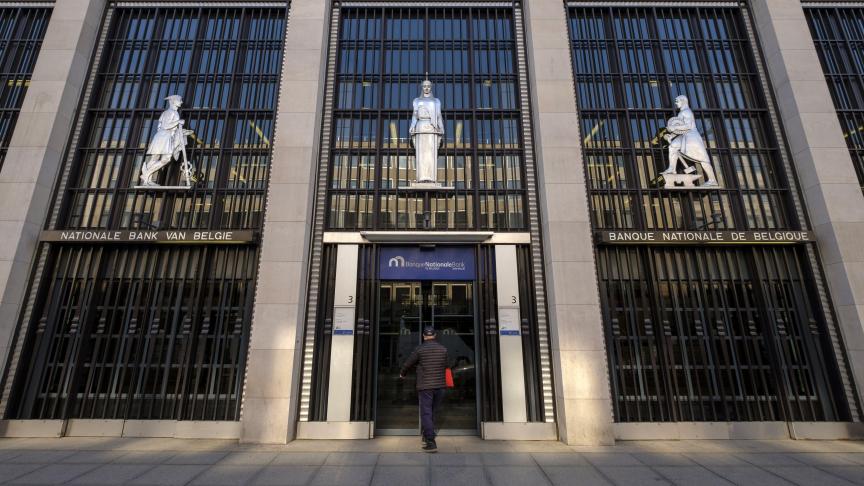Belgium’s already substantial budget deficit is set to continue widening and will likely exceed 5% of GDP by 2026, the National Bank of Belgium (NBB) warns in its autumn forecast.
To reverse the trend, the country needs to save €2 billion annually – a total of €10 billion – over the next five years – NBB Governor Pierre Wunsch stressed.
Although the real interest rate on Belgium’s debt remains low, the primary deficit remains high, he noted.
Only Slovakia's budget outlook seems worse
The public debt ratio is projected to be much the same as in 2023, at 105.2% of GDP in 2024, while primary public spending heads towards stabilisation at 53% of GDP.
With this budgetary outlook, Belgium ranks second from the last in the European Union, better only than Slovakia.
Related News
- 'A clear challenge': Fiscal watchdog warns Belgian debt is becoming unsustainable
- Belgium's budget deficit set to be second largest in Europe, claims EU
- 'Serious savings still required': Brussels suffers drastic budget cut
Nevertheless, Belgium’s GDP is expected to grow by 1.3% in 2024, at a quarterly pace of around 0.3%. Consumer spending is expected to sustain growth next year, backed by strong purchasing power, while public spending is also set to increase, a common occurrence during election periods.
Inflation projected to rise to 4% next year
However, foreign trade will remain sluggish, influenced by weak competitiveness.
After a fall in inflation in 2023, including a spell of deflation in Autumn, inflation is projected to climb again in 2024, nearing 4%. The end of the government’s energy support measures is the main reason cited for this rise by the National Bank.
The bank also pointed out that the indexation of wages will continue to add to labour costs in the private sector, although less so than in 2023.
Bank's projections more optimistic than government's, says Budget Minister
The hourly labour cost in Belgium, compared to neighbouring countries, increased by 4 percentage points in 2022 and 2023, mainly due to the automatic indexation system. Forecasts suggest this wage disparity will be eliminated by 2026, as wages in Germany, the Netherlands and France rise faster than in Belgium in the coming years.
Secretary of State for the Budget, Alexia Bertrand (Open VLD), expressed satisfaction with the National Bank’s predictions. She believes the federal government has taken the right political decisions, although deficit and debt levels need to be reduced.
Bertrand stressed that the bank’s economic growth outlook was more optimistic than the government’s own predictions, with the budget deficit for 2023 and 2024 lower than government estimates.

